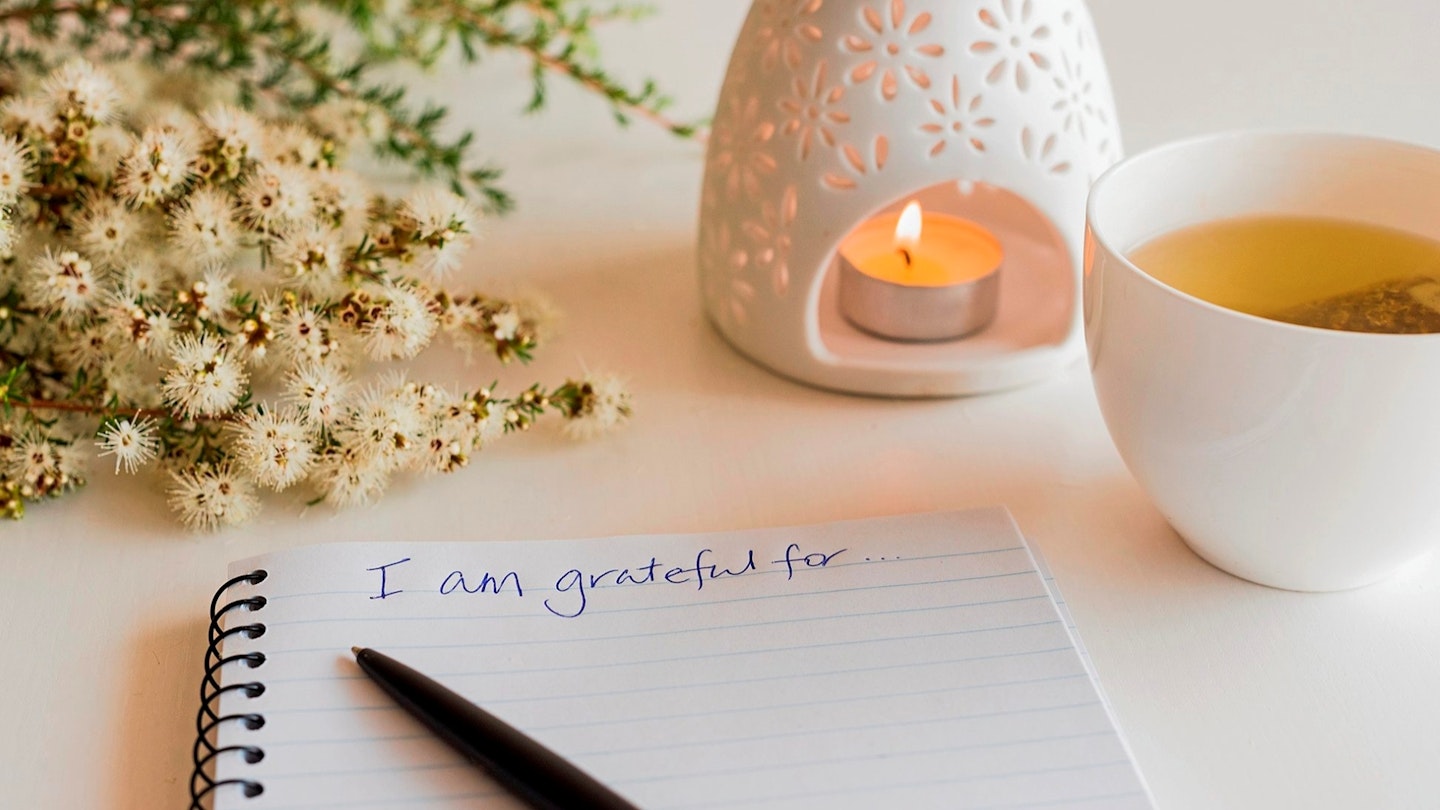Chase away the winter blues with these great techniques
Many of us feel lower in mood and energy as we adjust to the change in seasons. While autumn gives us the chance to gently drift towards winter, the reduction in sunlight can lead to fall in levels of serotonin, the hormone that affects mood, appetite, and sleep. There’s also an increase in the hormone melatonin, which can make you feel sleepy and depressed.
1. Talk to a friend
Positive social connections are key factors in happiness and general life satisfaction, say experts. A new 2023 study published in the science journal Communications Research looked at the types of conversations people needed to have, and how often they should have them, in order to improve their wellbeing. Researchers found that even having one daily conversation with a friend can increase happiness and lower stress levels. So what are you waiting for? Get out your phone book, or give that friend a call who you’ve been meaning to get round to!
2. Go for a 10-minute walk

“A 10-minute walk outside boosts our vitamin D, which increases our dopamine and our serotonin, or our happy chemicals,” says Dr Alison McClymont. “Even if the sun isn’t shining the vitamin D is blazing, so get outside and get a boost. This in turn also helps regulate our circadian rhythms, which makes us feel more alert, boosts our metabolism, and regulates emotions.”
3. Avoid catastrophising
Questioning negative thought patterns in any situation can move us from a miserable mindset to a happier state. If you are someone who always thinks the worst is going to happen, the first thing to do is step back and assess. Instead of focusing on the worst-case scenario, think of how a similar situation in the past might have played out and what you did then. Maintain a sense of perspective and ask yourself a question such as, “How will I feel about this situation in five hours, five days, or five months?” If you are someone who has habitually negative thought patterns, CBT techniques (Cognitive Behaviour Therapy) can be very effective in helping to reframe things more positively.
4. Swap ‘what if’ thinking for ‘what now’
Similarly, a chronic case of the ‘What Ifs’ never made anyone happier. When we think about what might have happened, we can end up chastising ourselves over perceived mistakes or regretting that something didn’t go another way. We can’t change the past, so instead of getting brought down by the what-ifs, reflect on what we can do right now to make things better.
5. Stop social media use at 6pm
“Rather like taking a walk outside, curbing blue light exposure will help regulate our circadian rhythms and allow our body to properly unwind and prepare itself for a restful night’s sleep,” says Dr Alison McClymont. “Leave your phone outside the bedroom and focus on giving your brain its much-needed detox and regeneration time.”
6. Practice gratitude

Giving thanks can make us happier, according to Harvard University, helping us to refocus on what we do have instead of what we lack. Writing someone an unprompted thank you note to say how much you appreciate them (for maximum happiness effect, deliver it in person) or even thanking someone mentally for something nice they’ve done can make us feel happier. Keeping a gratitude journal, counting our blessings, or sitting down to write down everything that has gone well that morning/day/week all help to bump up our happiness in the moment, even if it’s something as small as enjoying a nice cup of tea. “Gratitude practices have been shown by research to boost serotonin and overall feelings of wellbeing,” adds Dr Alison McClymont. “Just ten minutes a day can help calm stress and increase happy hormones by encouraging you to think about the positives in life.”
7. Put on some upbeat music

Putting on a favourite feel-good song always gives us a lift, and we can supercharge the happy feeling. A US study found that participants assigned to try to boost their mood while listening to twelve minutes of music reported higher positive mood, compared to participants who simply listened to music without attempting to alter their mood. Studies demonstrate that listening to positive music may be an effective way to improve happiness, particularly combined with an intention to become happier. Why not try creating your own happy playlist, or pick a ‘happy’ song every morning to start your day with – and then choose to be happy!
8. Get moving
Physical exertion produces serotonin, dopamine, and endorphins, the ‘happiness hormones’ or mood boost that comes with doing some sort of exercise (i.e., the ‘runner’s high’). But we don’t need to do a marathon to get the benefits. Any form of movement that increases our heart rate will prompt a positive feeling, while endorphins will also interact with pain receptors in our brain and actually reduce our perception of pain, which, of course, will make us feel better. Don’t fancy exercising or walking alone? Join a group or invite a friend – research shows that group workouts actually produce more endorphins than doing it alone.
9. Do self-care every day
“This is whatever self-care looks like to you; it could be reading, a facial, reflection time etcetera,” explains Dr Alison McClymont. “Spend time making yourself feel loved and cared for, even if it’s only ten minutes, to focus on something that brings you pure enjoyment. This helps to reduce stress and increase dopamine levels for a happy hormone hit that will carry through the rest of the day.”
10. Get your nature fix
Mother Nature is well known for her positive effect on our mental health. Countless studies have shown the connection between time spent in green spaces and reduced negative emotions, including things like anxiety, depression, stress, and even indigestion! Even five minutes in nature can make us feel happier, says a Canadian study, while spending just 20 minutes outside in nature has been shown to significantly reduce levels of the stress hormone cortisol. You don’t even need to be outside to get the benefits: just having a green view or looking at images of nature has shown to lower stress.
11. Do something nice for others
Research shows that doing something nice for others can boost our mood, as well as theirs. Another US study showed that employees who performed more acts of altruism in the workplace showed higher levels of happiness and job performance and were less likely to quit. Even something as small as paying your neighbour a compliment, letting someone go before you in the supermarket queue, or surprising someone with a homemade goodie can help.
12. Use a grounding technique
“Using a grounding technique like the 5, 4, 3, 2,1 approach helps to bring ourselves back to the present and fully into our body,” psychologist Alison McClymont says. “This will reduce feelings of hypervigilance, anxiety, or stress.”
How to do it:
-
5 things you can see
-
4 things you can touch
-
3 things you can hear
-
2 things you can smell
-
1 thing you can taste
13. Hug a pet (or watch a fish)

We love our pets, but they can make us happier too. Just stroking a dog or cat has been shown to release the ‘love hormone’ oxytocin, as well as decreasing levels of cortisol, the stress-related hormone. Even fish can perk up our happiness levels: studies have shown that just observing a fish in a tank or aquarium can lower stress levels and boost our mood, as well as bringing our blood pressure down!
14. Try aromatherapy

“Engaging all the senses that connect to our parasympathetic nervous system helps our hormones to regulate and release,” says Dr Alison McClymont. “We often neglect our sense of smell when focusing on sensory experiences, but research shows our smell has powerful synapses connections with our hormones and our memory bank. Dig out your favourite scents and see what happy memories come.”
Meet the expert:

Dr Alison McClymont is a leading clinical psychologist and an expert in creative art therapy (dralisonmcclymont.com).
